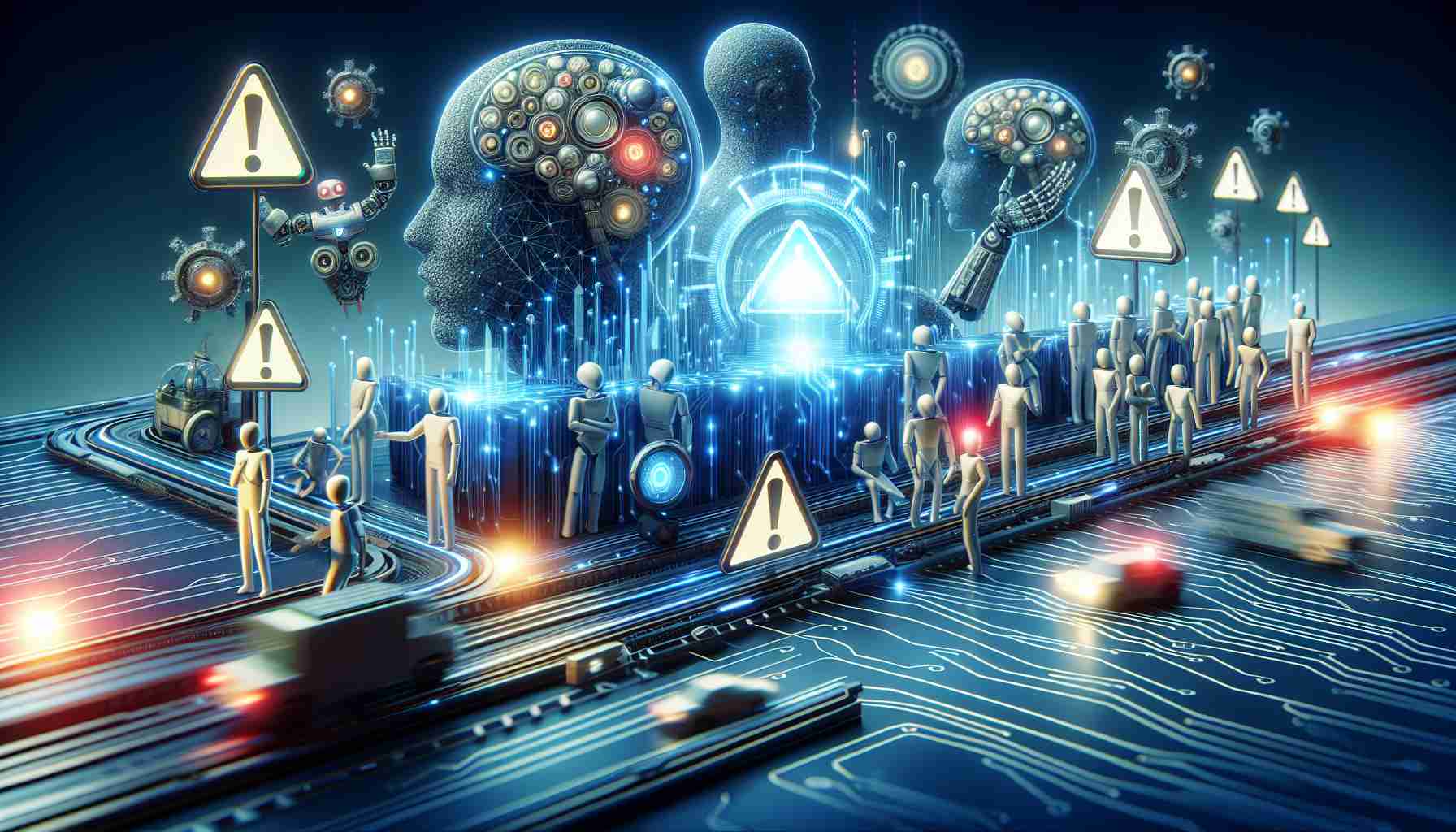In a world rapidly dominated by artificial intelligence, three leading experts came together at TechCrunch Disrupt 2024 to emphasize an often-overlooked necessity: taking a slower, more cautious approach to AI deployment.
AI Now Institute’s co-executive director, Sarah Myers West, stressed the importance of carefully considering the impact AI could have on the world. She voiced her concern over the frantic pace at which AI technologies are being released, underscoring that the ethical legacy of these innovations must be a priority.
The urgency of the situation has been driven home by tragic incidents such as the death of a child allegedly influenced by a chatbot from Character.AI, illustrating the profound risks associated with rash, unchecked AI implementation. Myers West highlighted the critical need to tackle longstanding issues like online abuse and misinformation.
Jingna Zhang, the creative force behind Cara, reflected on the repercussions of AI technologies on artists. After leading platform Meta announced that it could use public posts for AI training, artists like Zhang felt vulnerable. The potential misuse of their work threatens their livelihood, urging AI companies to respect copyright laws through licensing.
Meanwhile, Aleksandra Pedraszewska, head of safety at ElevenLabs, underscored the responsibility of ensuring AI technologies are not misused. With 33 million users, ElevenLabs faces unique challenges in managing unintended consequences like deepfakes. She advocated for a balanced regulatory approach and a stronger connection with the community to navigate the AI landscape safely.
The dialogue at TechCrunch Disrupt highlighted the need for thoughtful regulation and ethical guardrails in AI development.
AI’s Unseen Impact: Empowerment or Erosion?
As artificial intelligence (AI) weaves deeper into the fabric of our everyday lives, it promises revolutionary changes but also brings significant concerns, extending beyond the ethical considerations discussed at recent conventions like TechCrunch Disrupt 2024. While experts urge caution, the effects of rapid AI deployment reach far beyond theoretical ethical debates, tangibly influencing societies on multiple levels. This article delves into some lesser-explored facets of AI integration, focusing on its real-world implications for communities and individuals, and the ongoing controversies around it.
Expanding AI’s Reach: Beyond the Headlines
While experts have highlighted ethical concerns, AI is also dramatically reshaping economies. Automation, fueled by AI, has led to increased efficiency in industries such as manufacturing and logistics. Companies experience substantial cost savings and productivity gains, yet, this shift also creates anxiety among workers who fear job displacements. According to the World Economic Forum, AI is projected to replace 85 million jobs by 2025, but it will also create 97 million new roles, emphasizing a critical need for workforce reskilling.
In the healthcare sector, AI innovations are progressively enhancing diagnostics and patient care. For instance, AI algorithms can rapidly analyze medical imaging, offering more accurate diagnosis than traditional methods. But the reliance on AI in critical healthcare decisions raises potential liability disputes: who is accountable if an AI system errs— the developers, the healthcare providers, or the technology itself?
Social Dynamics: AI as a Double-Edged Sword
AI’s ability to generate content has versatile applications among businesses, yet it also poses significant socio-cultural dilemmas. On social media platforms, AI-generated content can foster community engagement and promote local artists, but bots and automated accounts often amplify misinformation and polarization, impacting democratic processes and national stability.
This intersection of AI with societal norms and regulations spotlights the urgent need for robust policy frameworks. OECD is among organizations advocating for policies that ensure AI serves the public good, complementing, rather than replacing, human decision-making.
Is Regulation Keeping Pace?
Global efforts to regulate AI lag behind its development. The European Union has taken early steps with its AI Act, aiming to impose strict guidelines and accountability on AI developers. However, critics argue the regulations could stifle innovation, particularly for smaller companies lacking resources to comply.
Furthermore, countries such as China and the United States are engaging in a tech race to dominate AI development. This competitive atmosphere could lead to disparities in how AI benefits are distributed globally, potentially exacerbating digital divides.
Advantages and Disadvantages Explored
The potential for AI to revolutionize industries offers several advantages. It promises increased efficiency, reduced errors, improved safety in workplaces, and enhanced customer service through personalized experiences. However, the disadvantages are just as compelling. AI can perpetuate biases, invade privacy, and cause economic dislocation through job loss. Additionally, the lack of standards for AI ethics and governance leads to fragmented approaches across nations.
Addressing the AI Challenge
– What are the long-term societal impacts of AI on human creativity and employment?
AI’s ability to replicate art and automate tasks traditionally performed by humans challenges conventional views on creativity and work. While it can democratize knowledge and broaden access to resources, AI’s role in devaluing human skills raises questions about the future of employment and the essence of human creativity.
– How can individuals and communities influence AI development?
By advocating for transparency and ethical use, participating in public discourse, and pushing for accountability, communities can shape AI policies that safeguard public interest. Engagement with governmental and international bodies helps prioritize ethical considerations in AI progression.
In our increasingly AI-driven world, society stands at a crossroads. The choices made today, regarding AI regulation, ethical implementation, and societal adaptation, will significantly shape future generations’ opportunities and challenges. Vigilance, education, and inclusivity remain key as we navigate the uncertain terrains of artificial intelligence.







